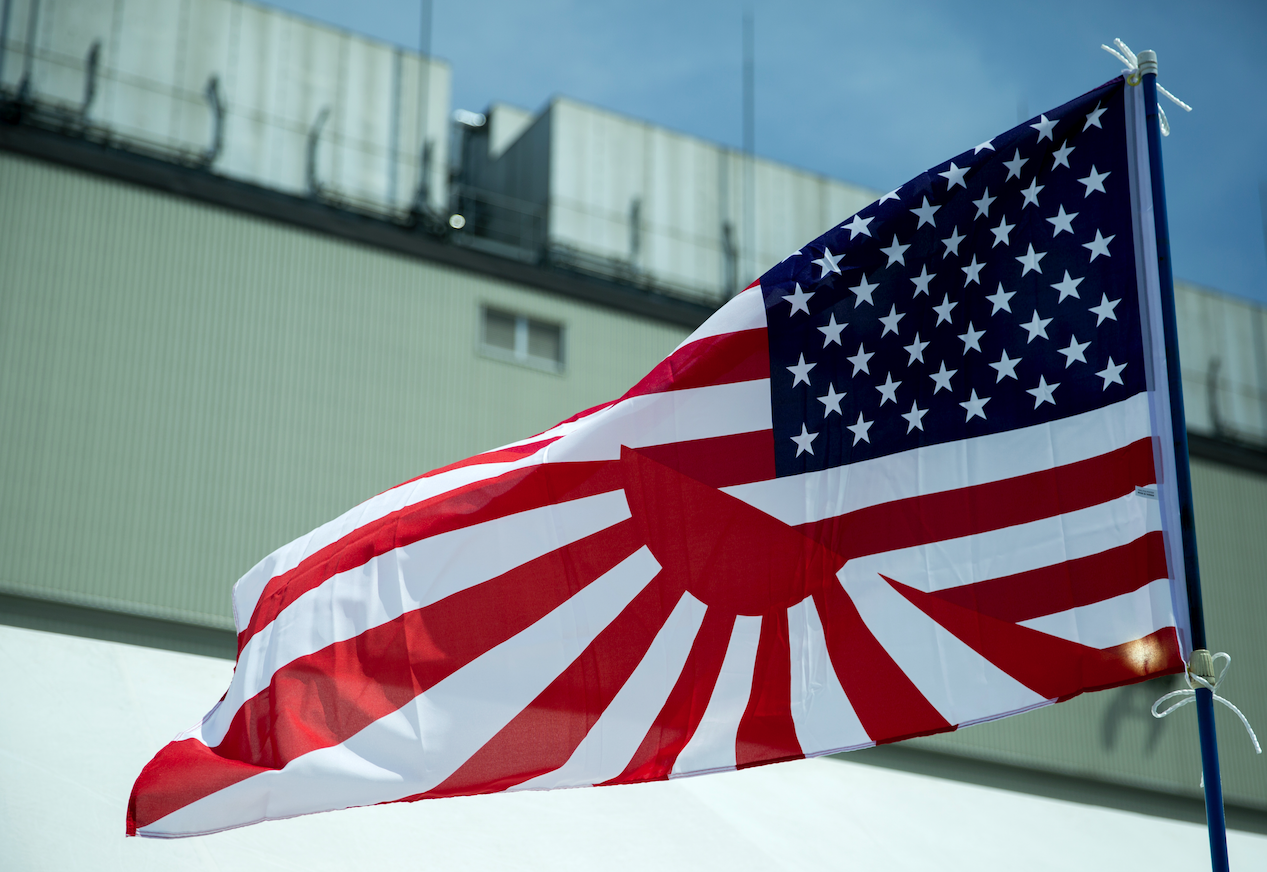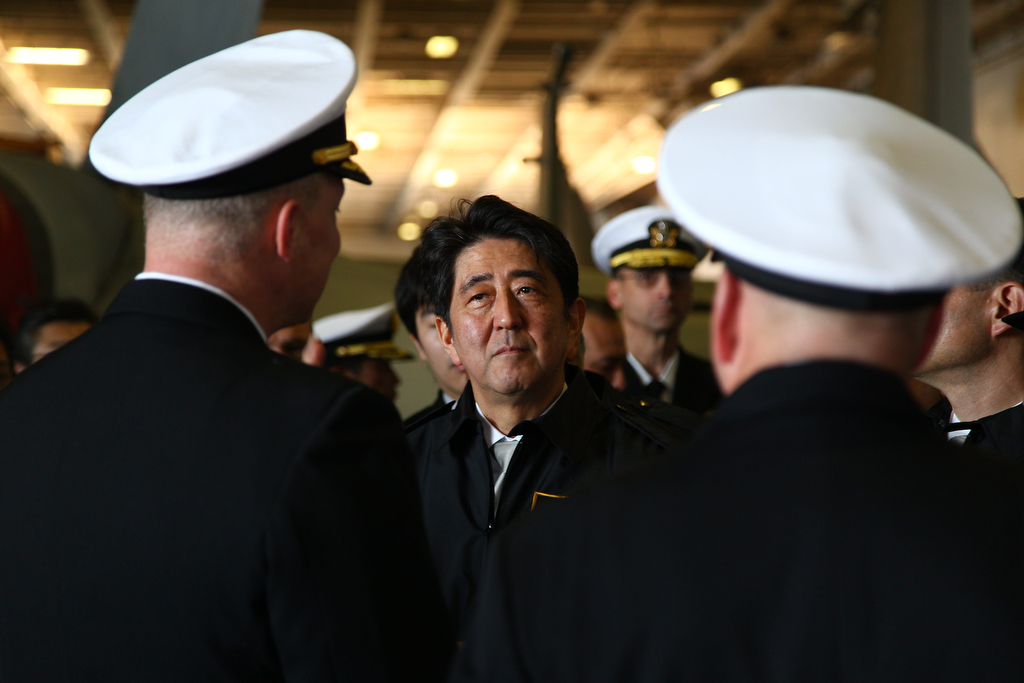
Japan doesn’t have an alternative to its American alliance when confronting North Korea’s missile and nuclear weapons threat or Beijing’s territorial aggression, a panel of regional experts agreed on Friday.
Japanese Prime Minister Shinzo Abe “wants to make sure the United States doesn’t get too far ahead” of Tokyo in defusing the still-volatile security situation on the Korean Peninsula or in its dealings with China on economic and diplomatic concerns across the Indo-Pacific, said Sheila Smith a senior fellow at the Council of Foreign Relations.
Japan has felt more pressure on what happens on the peninsula in the future because it was not given a heads-up that President Donald Trump was going to offer to talk directly with North Korean leader Kim Jong Un on Pyongyang’s weapons programs, Smith said at the Heritage Foundation in Washington, D.C.
Nor were they briefed on what concessions in terms of military presence in Korea or guarantees of response if attacked the administration was willing to make to eventually end the North’s nuclear weapons and missile testing and production.
Behind the scenes, since the meeting has ended, the Japanese have been touching base with the nations who supported the U.N. decision to send troops to Korea in 1950 to ensure their commitment to conditions now and continued sanctions pressure. They also have reached out to the Russians to ensure “a very concerted global response” remains in place.
Tokyo also, for more than a year, has been involving South Korea in military exercises it conducts with the United States to send a message to Pyongyang that the three are united despite separate security arrangements.
“Don’t take these two alliances as separate” if planning to attack Seoul by crossing a land border or striking Tokyo with short-range missiles or targeting Washington with intercontinental-range missiles, she said.
Smith called these moves to have the three militaries train together “unprecedented,” but whether those kinds of exercises will continue is unclear.
To Japan, Beijing’s territorial assertiveness isn’t confined to the building of artificial islands and positioning naval and air forces on these reclaimed reefs in the South China Sea, said Tsuneo “Nabe” Watanabe, a senior fellow at Sasakawa Peace Foundation. China’s constant aerial and maritime probing of islands Tokyo’s considers its own limits what Japan can do militarily in other parts of the Pacific. “A lot depends upon capability” to deliver vessels that Japan does not have with its coast guard and navy tied up patrolling its territorial seas against its close-by neighbor’s testing, menacing behavior and sometimes intrusion, he said.
Abe has brought Japan’s Self-Defense Forces, most often its navy and coast guard, into the international picture — most commonly in delivering humanitarian aid and participating in anti-piracy missions and counterterrorism operations.

ln addition, Kent Calder, director for East Asia Studies at Johns Hopkins University, said the Japanese could be a very effective partner with the United States in providing its extensive minesweeping force for deployment in the South China Sea and the Straits of Hormuz as deterrents to the Chinese and the Iranians.
Where Japan is hedging its bets is in trade, the panelists agreed.
While Abe has “sought to inform and explain” to Trump the downsides of keeping Tokyo at arm’s length on economic issues and the value of working together on building stronger and more stable economies across the Indo-Pacific, he has met with little success.
Watanabe said, Japanese “auto manufacturers are fearful” of what happens next. If tariffs, particularly on its automobile manufacturers, are imposed “Japan will retaliate” on U.S. agriculture, Smith said.
And with that looming, the panelists cited Abe’s recent talks with the European Union to expand businesses there, Tokyo’s payment of outstanding World War II debt to clear the decks for new agreements and discussions with India about how to build economic ties and expand those regionally as other examples of Japan looking out for its own interests.
Calder said Japanese businessmen, but less so its government, see some promise in the investment bank part China’s One Belt/One Road initiative to build infrastructure across Asia and the Pacific.
“There’s more pragmatism in the business world” when it comes to proposals like that without considering security policy implications. He compared the recent American proposal to invest $113 million in development packages for the region compared to China’s $900 billion as an example to show what would be more attractive to the private sector. “The scale does create some business interest” to look more deeply into possibilities of working with the Chinese.
This has become particularly true following the Trump administration’s pulling the United States out of the Trans-Pacific Partnership and walking away from the Iranian nuclear agreement.
A summit meeting between Abe and Chinese President Xi Jinping to go over trade between the two nations, what to do about North Korean weapons programs and steps to denuclearize the peninsula and what each is doing now with Iran following the U.S. pullout is possible soon. Foreign ministers covered much of this ground in a spring meeting in Tokyo.
For example concerning the impact of the nuclear agreement pullout, China intends to keep importing oil from Iran at the same levels it has since the pact was signed. It dismisses the United States’ threatening sanctions against nations trading with Tehran. Exactly how the European Union and Japan will respond in terms of trade with Iran is not as clear as long as Tehran sticks to the letter of the agreement.
Smith said Abe stressed to Trump in several meetings “let’s set the table on the Indo-Pacific” together and approach security and trade regionally.
“What are the rules of the road” Japan and the United States want for the Indo-Pacific and, specifically, China’s engagement or its continued attempts at coercion, she asked rhetorically.





